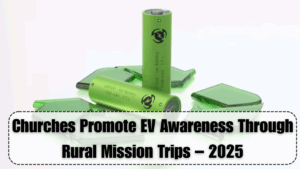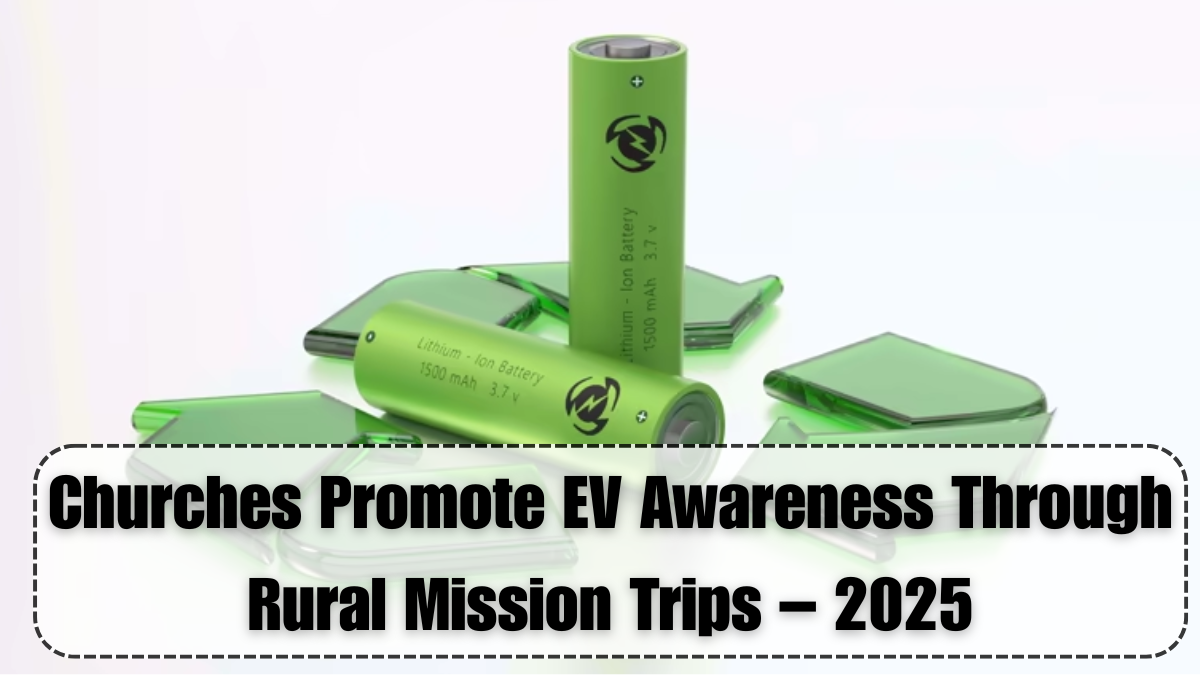In 2025, religious institutions are not only preaching hope—they’re also promoting sustainability. Across India, the US, and Africa, church-led EV awareness drives have become a growing part of rural mission trips. These initiatives are bringing together faith, education, and environmental consciousness in a way that deeply resonates with local communities.
Ministry vans and e-bikes are now a common sight in villages, carrying pastors, gospel teams, and eco-volunteers who teach the Word of God while spreading awareness about clean transportation and its benefits. This union of faith and innovation is rewriting the template for modern gospel missions.

Why Churches Are Leading the EV Awareness Movement
Churches have always been centers for transformation—spiritually and socially. The recent wave of church-led EV awareness drives is grounded in the idea of caring for creation and improving lives in underserved regions.
Key reasons why ministries are promoting EVs during outreach:
-
Spread environmental awareness alongside spiritual messages
-
Demonstrate practical eco-friendly solutions to rural communities
-
Set a visible example by using EVs for the mission trips themselves
-
Reduce fuel costs and carbon emissions from frequent travel
-
Strengthen the message of stewardship and sustainability
These gospel EV drives are building stronger, greener communities—one trip at a time.
What Happens During a Gospel EV Drive?
During a typical church-led EV awareness drive, the mission team travels to villages using electric vans, cars, or bikes and organizes community events that include:
-
Free health check-ups and prayer services
-
Demonstrations of how EVs work and save money
-
Q&A sessions on charging, maintenance, and government schemes
-
EV ride-alongs to show real-time cost savings
-
Distribution of gospel literature printed on recycled paper
-
Cultural programs and local worship sessions
These community events are often held in collaboration with NGOs, local schools, and environmental groups.
Real Success Stories from 2025
In Tamil Nadu, Zion Life Fellowship visited over 30 rural villages using an electric van, offering medical services and spreading awareness about EV benefits. In Odisha, Gospel on Wheels partnered with EV dealers to give free demo rides during worship events.
In Kenya, Hope Revival Ministry distributed solar-charged e-bikes to local youth pastors, allowing them to reach more homes for ministry without fuel costs. These real stories show how church-led EV awareness drives are creating real change.
Benefits of Combining Gospel Work with EV Advocacy
The fusion of gospel mission and EV advocacy offers multi-dimensional benefits:
| Benefit | Description |
|---|---|
| Faith + Function | Ministry and sustainability delivered in one effort |
| Local trust building | Showing care for people’s health and environment |
| Reduced carbon impact | Clean travel for rural road conditions |
| New income ideas | Locals explore e-rickshaw, e-bike opportunities |
| Spiritual & practical growth | Elevating lives both spiritually and economically |
These gospel EV drives are fulfilling the Great Commission in a 21st-century way.
What Makes These EV Awareness Drives Unique?
Unlike government or corporate EV campaigns, church-based outreach focuses on:
-
Building relationships, not just delivering messages
-
Creating a positive spiritual atmosphere
-
Addressing community-specific concerns (e.g., EV charging in power-deprived areas)
-
Offering faith-based motivation for eco-action
-
Being consistent with follow-up visits and support
This emotional and spiritual engagement creates lasting impact.
FAQs
What is a church-led EV awareness drive?
It is a mission-based outreach where churches promote electric vehicle use during rural gospel campaigns.
Why are churches involved in EV awareness?
To support clean living, reduce travel costs, and align with stewardship principles—while combining gospel EV drive goals.
What vehicles are used during these community events?
Churches commonly use electric vans, two-wheelers, and e-rickshaws during outreach missions.
Who supports these campaigns?
Local church members, youth groups, NGOs, and EV companies often partner to organize community events.
Are these campaigns effective in 2025?
Yes. They have led to measurable increases in rural EV adoption and stronger engagement with churches promoting green values.
Click here to know more.
